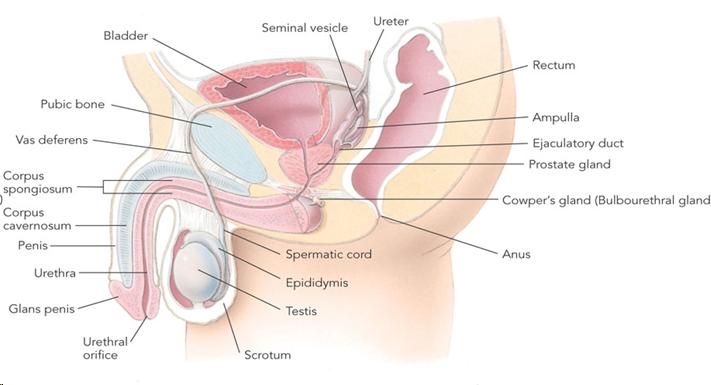
Sexuality in Late Adulthood
27


Changes in male sexual responsiveness begin to become apparent when men are in their forties and fifties. As a man ages, his frequency of sexual activity declines, achieving erection requires more stimulation and time, and the erection may not be as firm. Ejaculation takes longer and may not occur every time the penis is stimulated. Also, the refractory period is extended (up to 24 hours or longer in older men). However, sexual interest and enjoyment generally do not decrease. Although some of the changes are related directly to age and a normal decrease in testosterone production, others may be the result of diseases and conditions associated with aging.
It is important for older men to understand that slower responses are a normal function of aging and are unrelated to the ability to give or receive sexual pleasure.
About half of men over age 50 are affected to some degree by benign prostatic hyperplasia, also known as BPH. This is an enlargement of the prostate gland. BPH is not linked to cancer and does not raise a man's chance of getting prostate cancer, yet the symptoms of BPH and prostate cancer can be similar. The enlarged prostate may put pressure on the urethra, resulting in difficulty urinating and the frequent and urgent need to urinate. It does not affect sexual functioning.
Testosterone plays an important role in puberty and throughout a man's life. Because of changes to energy levels and sexual response, a rapidly growing number of older men are considering taking supplemental testosterone. Experts are inconclusive about whether testosterone supplements should be prescribed. Until more rigorous scientific studies are conducted, it is not known if the possible benefits of testosterone therapy outweigh its potential risks.
Image from McGraw Hill Image Library